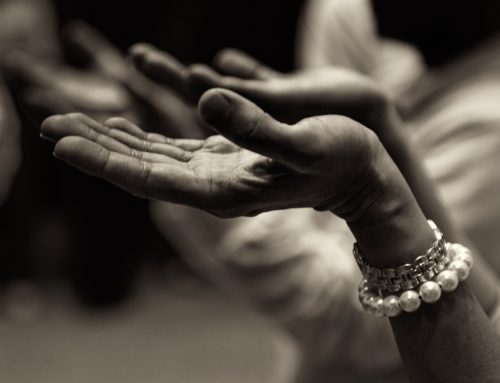I clearly recall a racially diverse couple I worked with when I lived in the Philippines.
I met the female partner at an international women’s club function. She was the featured speaker. I can still hear her passionate and fiery presentation that inspired activism and good will. When she learned that I was a therapist she asked if she and her partner could meet with me.
Second Thoughts
At our first session she told me she was having second thoughts about starting a family. She couldn’t figure out why. Her husband was confused by her second thoughts as well. She and he had talked long and hard and both had thought they were on the same page about wanting a family. But now that it was time, she was holding back.
They freely shared the shape and nature of their arguments but it took many sessions to get to the heart of her reluctance.
Their arguments had begun to include ever increasing jabs at their respective families and cultures. He was a black man from West Africa. She was a white woman from Scandinavia.
She didn’t like the words that occasionally escaped her lips. And she couldn’t understand it. Her father was a diplomat. She had attended international schools all her life. She knew how cultures put a premium on light skin colour but she had actively resisted peer pressure to take pride in her own light complexion. Now, living in the Philippines, she was vocal about her distaste for the billboards advertising skin-lightening products seen at almost every street corner.
He shared how shocked and surprised he was by comments that were so out of character for her. He so regretted, in hindsight, his equally harsh retaliatory comments.
The Real Issue for this Racially Diverse Couple
As we talked, she slowly discovered that the world’s cultural prejudices were, deep down, her own as well. With head bowed in shame she finally acknowledged her concern that her child might inherit her husband’s dark skin colour. This prejudice was so difficult for her to confront and manage. It almost drove her and her husband apart.
I’d like to say that I was an experienced guide for this couple.
All I could do was to help slow them down, contain their difficult comments, and keep at the forefront their deep desire to stay connected to each other.
In the end they taught me.
Lessons from this Cross Cultural Couple
Contrary to their fears (and mine), facing and sharing their deepest biases helped them grow beyond their prejudices. They stepped into each other’s shoes in such a deep way that one day he made a comment partly in jest, but with a note of authenticity, “I almost feel like I’m Scandinavian.”
Ultimately they chose for their shared values rather than old prejudices, with a solid awareness that going forward their biases would surface from time to time.
Successful culturally diverse couples are curious about their partner’s culture. They don’t presume their partner shares their assumptions about how things should be in a relationship. They delight in exploring their differences, and this helps them steer their way through many differences and misunderstandings.
But partners in a healthy culturally diverse relationship go beyond mere curiosity. They also wonder whether, and how, their cultural values might bias them negatively towards their partner. And they then work on those biases.
Couples like this give me confidence that cultures cannot only live together; they can heal each other too.
My experience with cross culture, interfaith, and international couples in Manila, Philippines continues to inform my work. But this couple, in particular, inspired me.
You can read about the work I do with racially diverse couples here.



This is a very positive message to present to anyone and everyone in a cross cultural relationship. But it goes it even further in that this can help loved ones surrounding a cross cultural relationship who might have the same biases. I am not in a cross cultural relationship but I know two separate couples that are. I am an extremely tolerant person open to different cultures and traditions, and so have no problems, but I thought about how other friends of these couples have reacted and have expressed their biases. It was certainly off putting. I didn’t understand how any one of my friends could still have such views especially when we all have known each other for so long. I think for many, there is still some inexplicable need or comfort to marry into the familiar. I think it’s important to be curious about one another’s culture and to openly express your own cultural habits and beliefs to promote a happy relationship.
Thanks so much for this lovely and helpful comment!